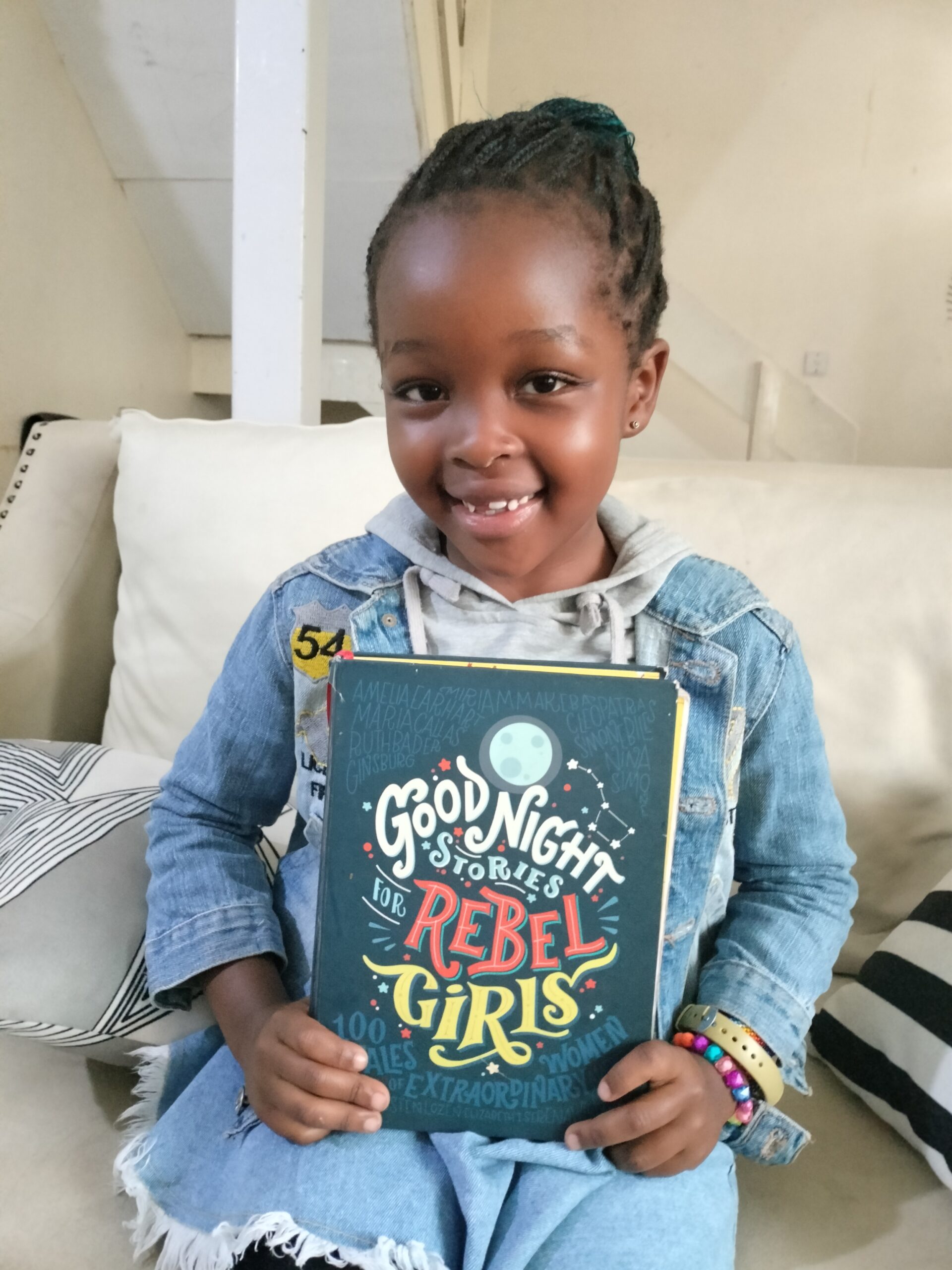As a parent, there are few joys greater than watching your child’s eyes light up with the wonder of a good story. Recently, I had the unique opportunity to sit down with my six-year-old daughter, Kyla Anaisha Mulure, on our podcast, ‘What’s on Your Shelf?’ to talk about her favorite books. As a young book enthusiast, Kyla has a growing collection of stories she cherishes, but one book in particular has captured her heart: Goodnight Stories for Rebel Girls, a gift from my dear friend Swarnima from India.
What struck me most during our conversation was Kyla’s choice of a favorite story from the book. She spoke with admiration about Michelle Obama, the first African American First Lady of the United States. Kyla was inspired by how Michelle, with the unwavering support of her parents, overcame her fears and rose to become a global icon of strength, grace, and resilience. This moment reminded me of the profound impact storytelling has on shaping our perspectives and empowering the next generation.
The Role of Stories in Shaping Perspectives
Stories have always been a powerful medium for conveying values, teaching lessons, and influencing the way we see the world. For children, stories are more than just entertainment—they are a gateway to understanding different cultures, perspectives, and experiences. Through characters like Michelle Obama, children learn about courage, perseverance, and the importance of education. Kyla’s fascination with Michelle Obama’s story is a testament to how narratives can plant seeds of inspiration in young minds. At an age where the world is full of possibilities, stories provide children with role models they can look up to, showing them that with determination and support, they too can achieve great things.
Empowering the Next Generation Through Stories
As parents, educators, and guardians, it’s our responsibility to curate the stories we share with our children. Books like *Goodnight Stories for Rebel Girls* are more than just collections of tales—they are tools of empowerment. By introducing our children to stories of real-life heroes and heroines, we equip them with the knowledge that they can be agents of change in their own lives and communities.
Kyla’s connection with Michelle Obama’s story goes beyond admiration; it reflects her understanding that success isn’t just about where you come from, but about how you choose to navigate the challenges in your path. This is the essence of storytelling at its best—instilling values that will guide our children as they grow into thoughtful, compassionate, and resilient individuals.
The Importance of Representation in Stories
It’s also crucial to recognize the importance of representation in the stories we share with our children. Kyla’s excitement about Michelle Obama’s story is also rooted in seeing a figure who looks like her, who shares a similar heritage, and who has made history. Representation matters because it tells children that their dreams are valid and that their potential is limitless.
In a world that is becoming increasingly diverse, ensuring that our children see themselves reflected in the stories they read is essential. It reinforces their self-worth and affirms that they too can be leaders, innovators, and changemakers.
Our conversation about Goodnight Stories for Rebel Girls was more than just a discussion about books; it was a reminder of the power of storytelling in shaping the next generation. As Kyla continues to grow and explore new stories, I am excited to see how these narratives will influence her perspective and guide her on her journey.
Storytelling is not just an art; it’s a tool for empowerment, a way to pass down wisdom, and a means of connecting our children with the world around them. As we share these stories, let’s remember the impact they can have on young minds and the importance of choosing tales that inspire, uplift, and empower.
You can watch the full interview with Kyla here: https://www.youtube.com/watch?v=9WJGJsvzFDg







